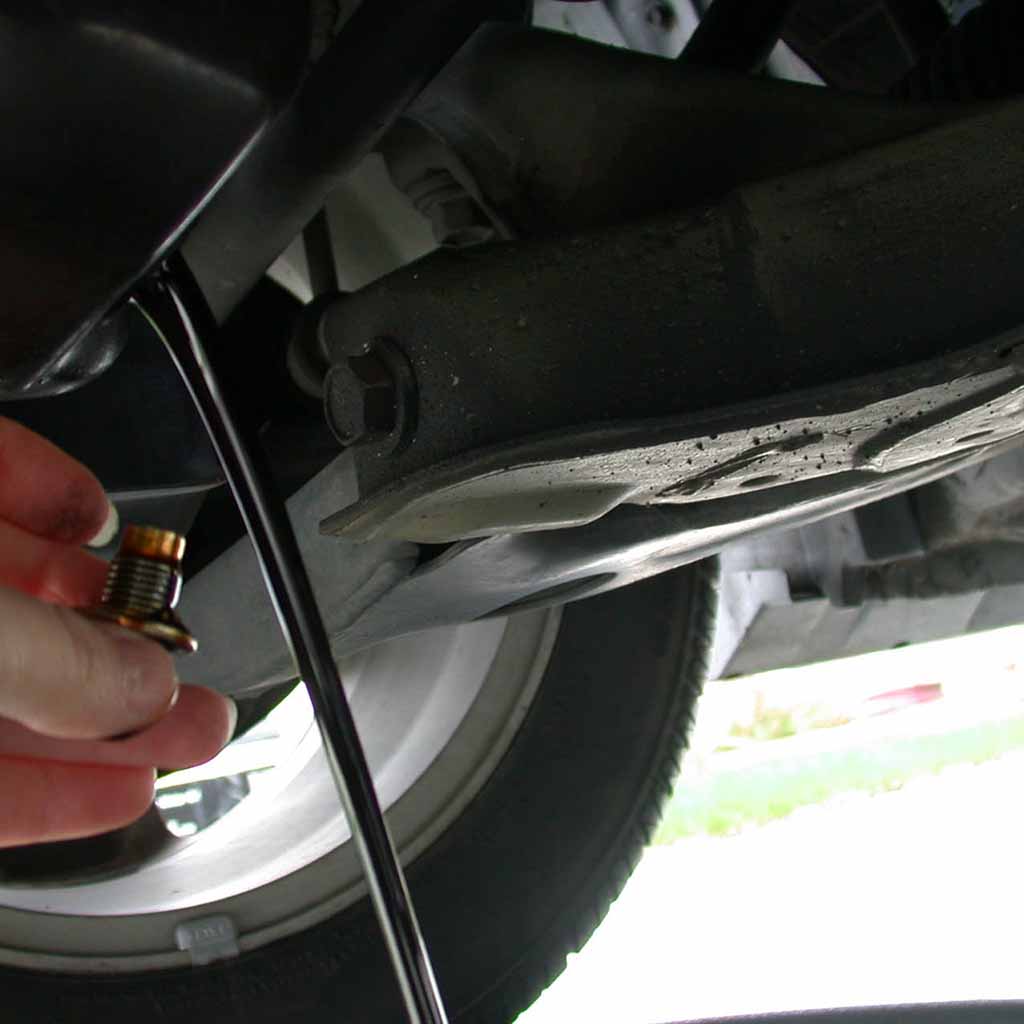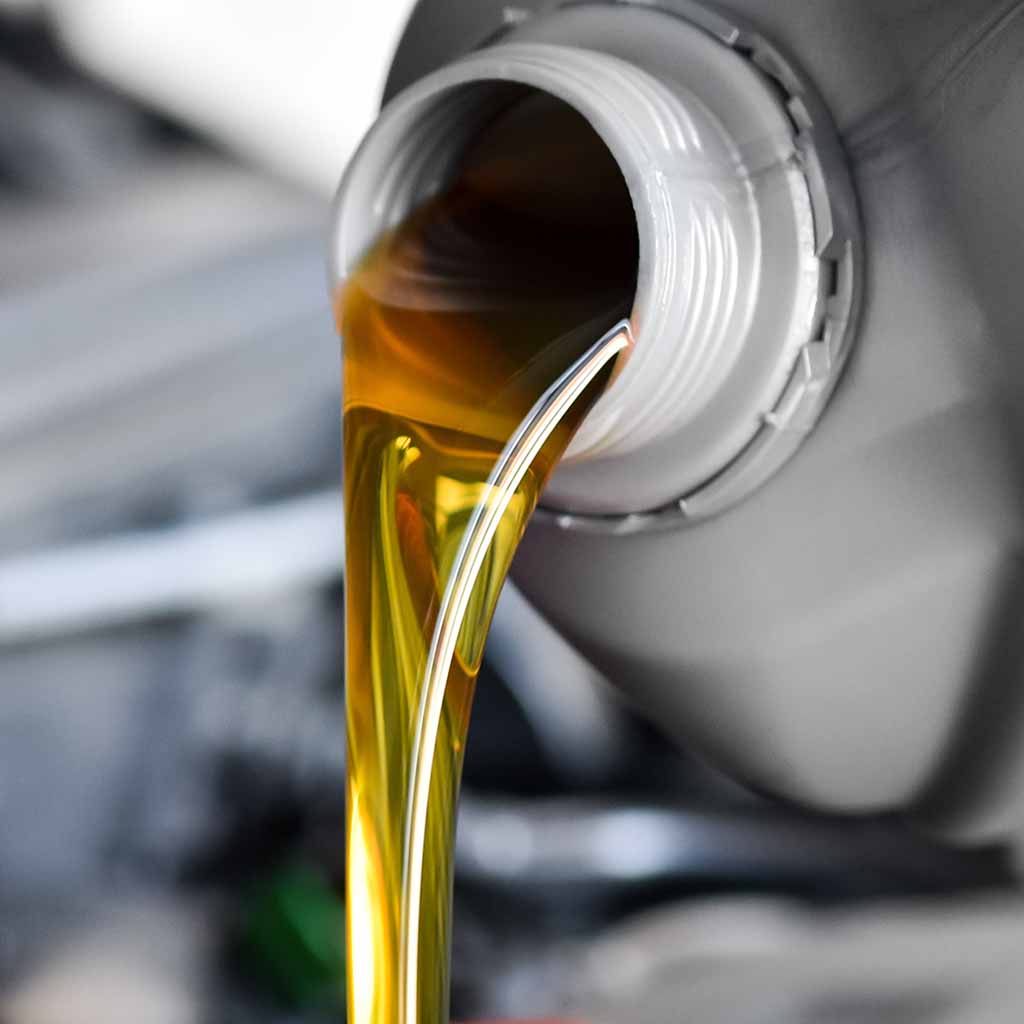Oil Change Service in Santa Rosa, Ca

Easy and Fast
Oil Change Service
Located in Santa Rosa, CA, Spring Works Certified Technicians are trained to change your oil in a fast and efficient manner. Changing the oil and filter in your vehicle at regular intervals is crucial to extending the life of your engine and should be done at least every 5,000 miles. Follow your manufacturer’s guidelines, as the length of time in between oil changes can range from 3,000–10,000 miles, depending on the make and model of your vehicle and the type of oil it requires.
Other factors that can impact how long you go in between oil changes include your driving habits, what kinds of roads you drive on, whether you frequently carry heavy loads, what climate you live in, and how old your car is.
You’ll get more than just an oil change when you come to Spring Works. Schedule an inspection to make sure your vehicle will continue to be safe and reliable. Do you need your tires rotated? No problem! Ask us. Make an appointment for an oil change or service today.

Get It Done Right
Oil Fluid Inspection
The first thing we’ll check when you bring your vehicle into Spring Works for an oil change is the oil fluid level and condition. We use a dipstick to determine whether your oil is at the appropriate level. This helps us determine the overall health of your vehicle.
In addition to checking the fluid level, we’ll also check the color of your oil. It should be brown or black. Sometimes oil turns to a light, almost milky color, which isn’t normal and can indicate that coolant’s leaking into your engine. If that’s the case with your oil, then we’ll need to spend some time further diagnosing the issue.
During a routine oil change, we’ll remove the oil pan to let the old oil run out. Then, we’ll fill your engine up with new oil. The process of changing the oil in your vehicle is relatively straightforward. Our oil changes include more than just taking out the old oil fluid and replacing it, though. We give your vehicle a thorough check to make sure it is running properly and to diagnose any issues early on before they get dangerous (and costly!)
Serving Santa Rosa, Ca
Full Service Oil Change
At Spring Works, we take great pride in offering our customers a comprehensive and top-notch Full Service Oil Change. Our dedication to your vehicle's maintenance and optimal performance is reflected in the meticulous care we provide during each oil change.
When you choose our Full Service Oil Change, you can rest assured that our skilled technicians will install a new oil filter, ensuring your engine receives clean and efficient lubrication. Additionally, we meticulously lubricate the chassis, where applicable, to enhance your vehicle's overall performance and reduce wear on essential components.
At Spring Works, we understand that getting the job done right is of utmost importance to you, and that's precisely what we guarantee with our Full Service Oil Change. Experience the difference of our professional care and attention to detail, and let us help you maintain your vehicle in optimal condition for a smooth and reliable driving experience.

Lowest Quality Motor Oil
Conventional Oil
Also called mineral oil, this is the standard oil that’s used in vehicles. The main benefit of using conventional oil is that it’s cheaper than synthetic oil. Conventional oil is derived from crude oil and has been used in oil changes for the last 100 or so years. If you have an older vehicle, it’s probably designed to be used with conventional oil. When synthetic oil was first introduced, it caused some damage to older engines. Over time, though, synthetic oil has improved, so you should be able to use either type of oil in an older vehicle.
The question, though, is do you need to use synthetic oil? Conventional oil has a lot of things going for it, especially if you don’t drive a lot of miles and are pretty consistent when it comes to your car maintenance schedule. In fact, synthetic oil actually starts as conventional oil. It then gets modified, which makes it more protective and gives it better lubricant properties. If you don’t drive your vehicle many miles, then you might never even get the protection benefits that you pay for with synthetic oil.
Conventional oil can provide lubrication to your engine at high temperatures and is less costly than synthetic oil. If you keep up with your regular oil change maintenance schedule, don’t drive tons of miles at a time, and don’t drive your vehicle under extreme driving conditions, then you might be able to save some money and still have a smooth running vehicle by sticking with conventional oil.
Better Quality Motor Oil
Synthetic Blend Oil
Synthetic blend oil is what it sounds like—a blend of synthetic and conventional oil. It’s a more economical way to get synthetic oil into your vehicle and provides you with the best of both synthetic and conventional oils. Use synthetic oil blend to get several benefits, like improved wear protection, better performance when you’re using your vehicle for heavy-duty towing, and better start-up protection, compared with using conventional/mineral oil. We are phasing out conventional oils at Spring Works because the cost for blends is comparable while the performance is significantly better. 90% of our oil replacement is with synthetic blends in place of conventional.
Best Quality Motor Oil
Full Synthetic Oil
Full synthetic oil is the most costly type of oil, but it can be well worth the price if you drive lots of miles, use your vehicle for heavy-duty towing, live somewhere that’s extremely hot or extremely cold, or simply want to give your car the very best when it comes to maintenance and upkeep.
Synthetic oil is the best type of oil on the market, and it’s recommended if you plan on driving your vehicle for a long time and for hundreds of thousands of miles. It does the best job protecting your engine out of all the types of oil, and it does a good job cleaning out sludge and deposits. As an added bonus, you can usually go longer in between oil changes when you use synthetic vs. conventional oil.
You can go back and forth in between using synthetic and conventional oil, so you can always try synthetic oil at your next oil change and then switch back to conventional if you decide you don’t like it.
No matter what type of car you have or what type of oil you use, make sure to bring it in for regular, routine oil changes and inspections. These will keep your vehicle running and prevent more costly repairs down the road. Schedule an appointment today!





